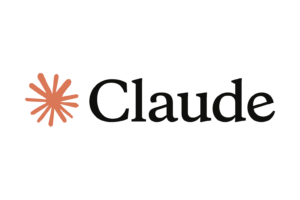Getting Started with Claude: A Beginner’s Guide to Anthropic’s Next-Generation AI
Claude, the breakthrough generative AI that’s capturing global attention. Developed by Anthropic, this large-scale language model stands apart from traditional tools with its exceptional performance and reliability.
Claude provides natural conversation, complex reasoning, processing of lengthy documents, multilingual support, and even a transparent chain-of-thought process through its extended reasoning mode—unlocking new possibilities in both business and creative fields.
This article explains, in an easy-to-understand manner for beginners, an overview of Claude, the features of each model, and practical use cases. Learn about the appeal and functionality of Claude, and take your first step toward harnessing next-generation AI.
Overview of Anthropic and Claude
Anthropic is an American startup dedicated to pioneering innovative approaches using cutting-edge AI technology. Founded by former OpenAI members, the company has rapidly gained industry attention by securing significant funding in a short period.
Claude is the flagship generative AI model developed by Anthropic, delivering natural dialogue, high-precision reasoning, and extensive context processing. It caters to a wide range of applications—from corporate projects to creative endeavors—and its robust multilingual capabilities are a significant part of its appeal.
Claude Family Model Lineup
Anthropic offers a rich lineup of Claude models, providing the optimal choice based on your use case, budget, and performance requirements.
For example, Claude 3.7 Sonnet is the most intelligent model equipped with an extended reasoning mode, making it ideal for complex reasoning, advanced analysis, and strategic decision-making.
Meanwhile, Claude 3.5 Sonnet and Claude 3.5 Haiku balance intelligence with rapid response, specifically designed for tasks like real-time conversations and code generation that require speed.
Additionally, Claude 3 Opus delivers top-level accuracy for mathematical and intricate tasks, while Claude 3 Haiku offers the most compact and instantaneous responses.
All of these models feature robust multilingual support, visual capabilities, and a substantial 200K token context window, making them highly versatile for various business environments and research applications.
Key Features and Benefits of Claude
Claude excels across a wide range of tasks thanks to its advanced natural language processing capabilities. It not only generates natural conversations but is also capable of complex reasoning, detailed text summarization, code generation, and even visual analysis when combined with image inputs—making it a powerful tool for diverse business scenarios.
With its enormous 200K token context window, Claude effectively handles lengthy legal documents and integrates data from multiple sources.
Furthermore, Claude’s multilingual support and consistency in maintaining a brand voice make it an indispensable tool for serving a global customer base.
Its flexible prompt design allows users to adjust the tone, content, and level of detail as needed, ensuring reliable output for use cases such as customer support, legal document summarization, and content moderation.
Development Environment and Tools for Implementing Claude
Claude can be easily integrated into applications using the intuitive developer tools provided by Anthropic.
First, access the Anthropic Console and use the Workbench to test prompts and execute API calls, allowing you to observe Claude’s behavior and response patterns in real time.
The Workbench lets you input prompts directly in your browser and view responses instantly, making it extremely convenient for experiments.
Anthropic also offers SDKs for Python and TypeScript, enabling you to implement and integrate Claude’s functionality in your own environment with ease.
This helps you run experiments based on sample code and tailor prompt engineering to your specific use cases.
Additionally, comprehensive documentation—such as the Anthropic Cookbook and API Reference—is available, ensuring that both beginners and advanced developers can smoothly leverage Claude’s capabilities.
Source: Welcome to Claude - Anthropic
Practical Use Cases for Claude
Leveraging its advanced natural language understanding and generation capabilities, Claude can be applied to a wide range of practical use cases across various industries. In this section, we present specific examples that are accessible even for beginners.
Customer Support Agent
Claude provides 24/7 chat support by delivering fast and natural responses to customer inquiries. It maintains your brand's tone while answering questions, and significantly reduces the workload of support agents by automating FAQ generation and estimate collection.
Ticket Routing
Claude efficiently categorizes a large volume of customer support tickets, automatically routing each inquiry to the appropriate department or agent based on urgency and content. By accurately capturing context and nuance, Claude offers more flexible and precise classification than traditional machine learning models.
Content Moderation
Maintaining a safe and respectful digital environment is essential. Claude quickly detects inappropriate or harmful content and consistently applies moderation decisions based on your policies. Leveraging its multilingual and multimodal capabilities, it can evaluate content not only in text but also in images.
Legal Document Summarization
Claude swiftly extracts key points and metadata from vast legal documents like contracts, case laws, and regulatory texts, and generates organized, easy-to-read summaries. This significantly reduces the time and cost involved in legal research and review, supporting legal professionals in their work.
These use cases are enabled by Claude's flexible prompt design and large context processing capacity, allowing it to deliver high performance in real-world operations and system automation. By fine-tuning prompts and integrating the necessary API connections for each use case, even more refined solutions can be built.
Source: Guides to common use cases - Anthropic
Details and Applications of the Extended Reasoning Mode
Claude 3.7 Sonnet offers a unique hybrid approach by providing both a standard mode and an extended reasoning mode. In the extended reasoning mode, before generating the final answer, Claude outputs its internal thought process—revealing how it arrived at the answer—thus ensuring high transparency in its reasoning.
This allows users to review the entire reasoning process, which is particularly beneficial for complex problems or scenarios that require multidimensional analysis, leading to enhanced understanding and trust.
The extended reasoning mode excels in challenging tasks such as multi-faceted financial analysis, detailed legal document interpretation, and advanced problem-solving in STEM fields.
It is recommended to first establish Claude’s baseline performance using the standard mode, and then gradually enable the extended reasoning mode by adjusting the reasoning budget (i.e., the number of inference tokens allocated) based on your requirements.
When designing prompts, overly detailed instructions on "how to think" can add unnecessary information, increasing token usage (and cost). Instead, intentionally remove redundant "Chain-of-Thought" instructions and observe Claude’s natural reasoning process.
This way, you can determine the right level of inference and output detail needed, ultimately striking the optimal balance between output clarity and token cost.
Cost and Budget Management
Each model in the Claude family is priced based on its capabilities and intended use. Costs are primarily determined by the number of “input tokens” and “output tokens” used, and are estimated on a per-million-token basis.
Models designed for advanced reasoning or complex tasks generally incur higher costs. However, for use cases that prioritize real-time performance and cost efficiency, lower-priced models are ideal. The table below compares the key features and costs per million tokens for the main models.
| Model Name | Characteristics | Training Data Cutoff | Max Output Tokens | Input Cost (per MTok) | Output Cost (per MTok) |
|---|---|---|---|---|---|
| Claude 3.7 Sonnet | The most intelligent model, featuring extended reasoning mode for complex inferences | November 1, 2024 | 8,192 (extended: 64,000) | $3.00 | $15.00 |
| Claude 3.5 Sonnet | An upgraded version that maintains high levels of intelligence and capability | April 2024 | 8,192 | $3.00 | $15.00 |
| Claude 3.5 Haiku | The fastest and most cost-efficient model | July 2024 | 8,192 | $0.80 | $4.00 |
| Claude 3 Opus | The top-tier model designed for complex tasks | August 2023 | 4,096 | $15.00 | $75.00 |
| Claude 3 Haiku | A highly compact model offering instantaneous response and low cost | August 2023 | 4,096 | $0.25 | $1.25 |
Source: All models overview - Anthropic
MTok: Cost per 1,000,000 tokens.
For example, tasks such as summarizing legal documents that process large volumes of text or performing advanced numerical analysis require higher-performing models (such as Claude 3.7 Sonnet or Claude 3 Opus), which naturally come with increased costs.
On the other hand, for chatbots or real-time systems that demand simple and immediate responses, lower-cost models like Claude 3 Haiku are more suitable.
Selecting the appropriate model and optimizing token usage—by simplifying prompts and reducing unnecessary chain-of-thought instructions—directly impacts the management of operational costs.
Choose the optimal model for each use case and adjust your settings to achieve the required performance within your budget.
Enterprise Strengths
In addition to its high-performance generative AI capabilities for general users, Claude is designed with features tailored for enterprise environments, including reliability, security, scalability, and seamless integration.
These features are critical strengths for enterprises driving large-scale automation and digital transformation initiatives. Key benefits include:
Security and Compliance
Claude is built with enterprise-grade security, meeting numerous strict standards including SOC II Type 2 certification.
Additionally, HIPAA compliance options are available, ensuring that sensitive information and industry-specific regulatory requirements are fully supported.
Reliability and Resilience
Claude is highly resilient against jailbreak attempts and misuse, with strict usage policies and monitoring systems that significantly reduce the risk of unauthorized use and erroneous outputs.
As a commercial service for enterprises, copyright indemnification is also provided, ensuring a secure environment for peace of mind.
High-Performance and Scalable Platform
With its massive 200K token context window and support for diverse inputs (text, images), Claude can handle complex document processing, integrated analysis of lengthy texts, and even intricate data analysis.
Moreover, the integration of the extended reasoning mode allows for flexible application in enterprise scenarios that require deep inference and analytical capabilities.
Seamless Integration and Robust Developer Tools
Anthropic provides a wide range of developer tools—including the Anthropic Console, Workbench, Python and TypeScript SDKs, and extensive API documentation—that make integration with existing enterprise systems straightforward.
This facilitates the rapid development of custom applications and the automation of business processes.
Balancing Cost and Performance
With multiple model options—Claude 3.7 Sonnet, Claude 3.5 Sonnet, Claude 3.5 Haiku, Claude 3 Opus, and Claude 3 Haiku—you can choose the optimal balance of performance and cost-effectiveness tailored to your specific use case.
Enterprise users have the flexibility to choose models that provide high intelligence for demanding tasks while optimizing for cost-efficiency where necessary.
By leveraging these enterprise strengths, Claude delivers secure and efficient AI-driven solutions even in large-scale, mission-critical environments, supporting digital transformation across businesses.
Summary
This article has provided an overview of Anthropic's next-generation generative AI platform, Claude, including its diverse use cases and key enterprise strengths.
Claude boasts advanced features such as fast and accurate natural language processing, a large context window, multilingual support, and an extended reasoning mode, proving effective across a range of tasks including customer support, ticket routing, content moderation, and legal document summarization.
Moreover, Anthropic provides user-friendly developer tools, SDKs, and extensive documentation, making integration and implementation straightforward for both beginners and advanced users alike.
For enterprises, the combination of stringent security, flexible API integration, and a balanced model lineup in terms of cost and performance is expected to drive large-scale automation and digital transformation initiatives.
Claude represents a novel approach by providing transparency and advanced reasoning processes that were previously difficult to achieve with conventional generative AI, instilling confidence and trust in both users and administrators.
Moving forward, keeping an eye on updates and new model releases from Claude will be essential to continuously harness its capabilities in alignment with the ideal use cases, thereby driving operational efficiency and innovation.



